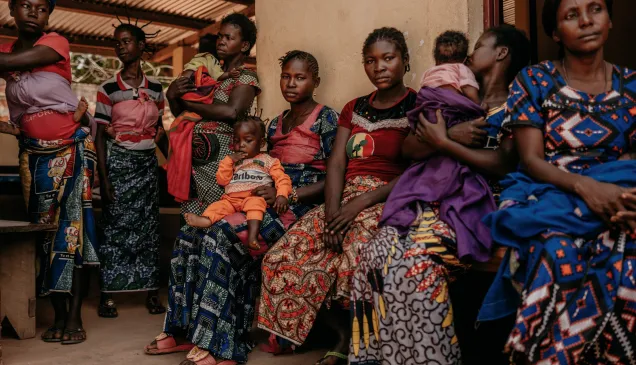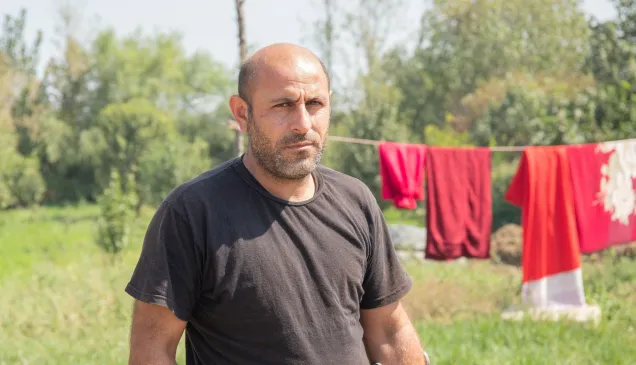Mozambique: 13,500 families receive emergency assistance and support for income generation in 2022
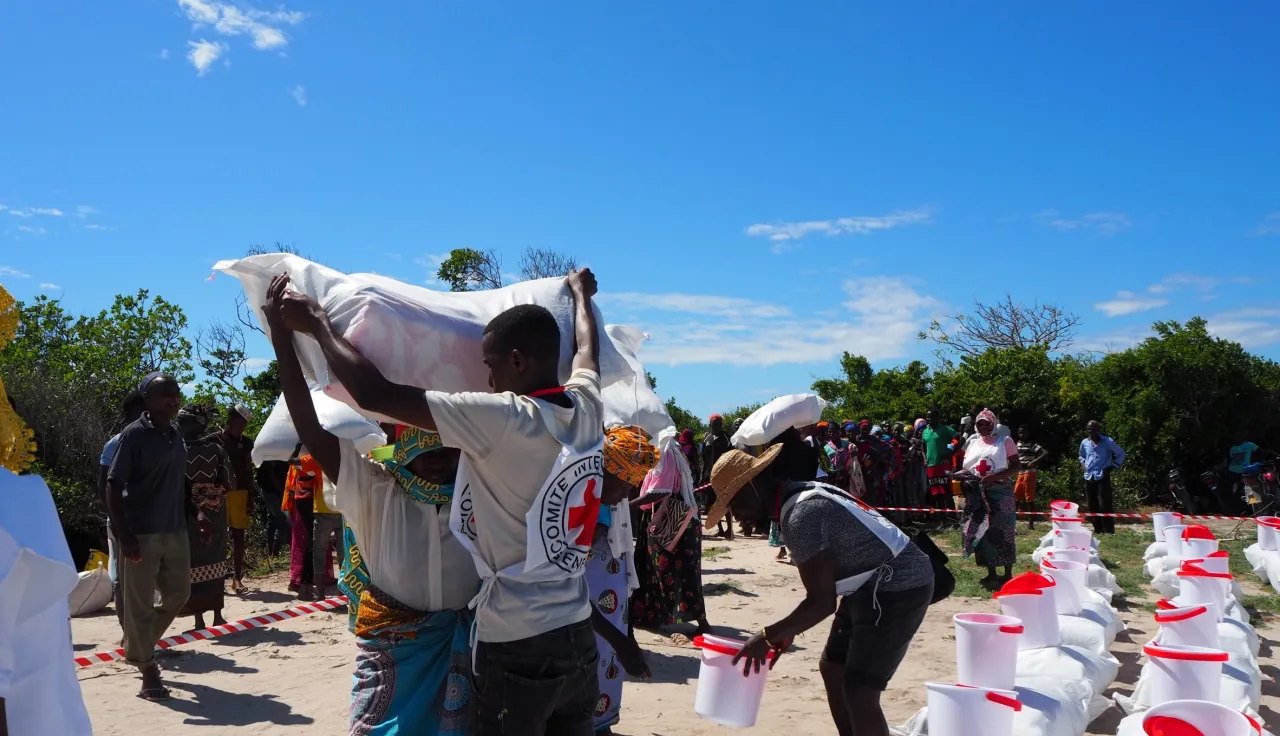
ICRC provided emergency assistance and sustainable programmes to displaced people and host communities to respond to the humanitarian consequences of the conflict. To help meet their urgent needs, we provided access to healthcare, potable water, and livelihoods in collaboration with the Mozambican Red Cross (CVM). We reinforced the health services with the expansion and rehabilitation of six health centres and developed an urban water distribution system in Montepuez.
Another year of armed conflict in northern Mozambique contributed significantly to the multiple humanitarian challenges the country is facing due to the impact on affected communities. Around 1.5 million people are estimated to need humanitarian assistance and 950,000 people are internally displaced due to armed violence, according to the International Organization for Migration (IOM).
In the second half of 2022, tens of thousands of people started the return process to their villages of origin. Many are currently living in basic conditions, sleeping under tarpaulins or in the open air, and without access to livelihoods and basic services.
We provided essential household utensils and farming and fishing equipment, as well as supported the vaccination against Covid-19 of 1.6 million people in areas affected by conflict in the north and in hard-to-reach districts in the centre of the country. Our teams also carried out periodic visits to six prisons, continued to help to locate and reunite families separated by the conflict, and maintained a protection helpline to support them.
To improve knowledge of international humanitarian law (IHL), which seeks to protect civilians during armed conflicts, we engaged with the Mozambican and other defense and security forces, the judiciary and academic circles, as well as the National Commission of Human Rights and Humanitarian Law.
Providing emergency assistance
- 1,800 fishing kits were provided to 1,800 households (800 men and 1,000 women) in Ibo district.
- 5,000 agro kits comprising of seeds and tools were distributed to farming households in Montepuez district to support own production of food.
- 6,727 households (mainly internally displaced people) received essential household items (buckets, kitchen utensils, soap, sleeping mats, nets, blankets and tarpaulins for shelter) in Montepuez, Ibo, and Metuge districts.
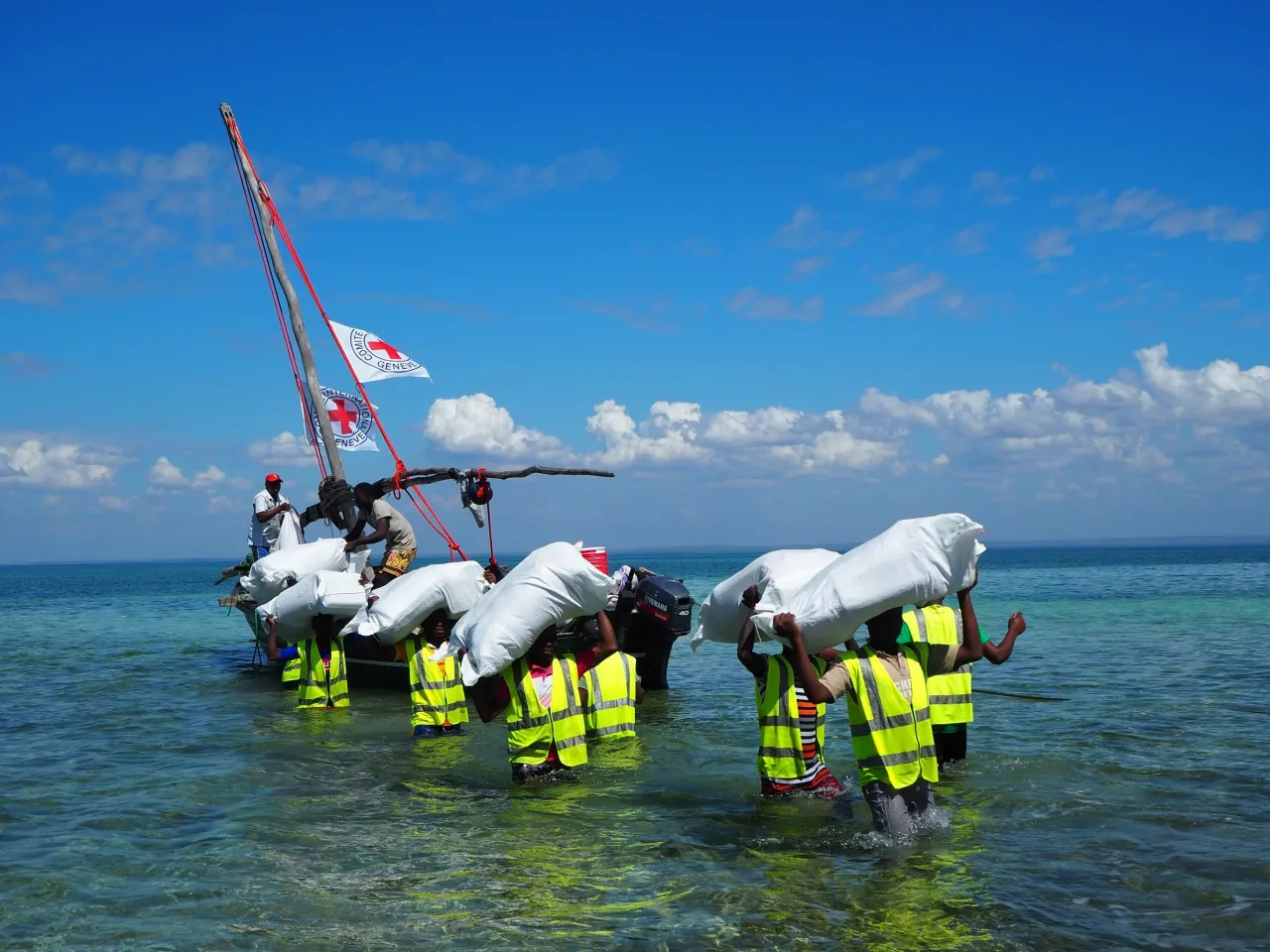
Improving access to healthcare
- 6 healthcare centres in Pemba (Muxara, Mahate and Ingonane) and Montepuez (Nihula, Napai and Namueto) and the first phase of Ibo Hospital were rehabilited and built. The health facilities supported by the ICRC have attended 424,742 patients, 16,715 antenatal care consultations and conducted 3,740 deliveries.
- 1,615,430 people in the central region and Cabo Delgado (1 dose, fully vaccinated and boosters) of whom 645,235 were fully vaccinated the end of the first semester 2022.
- 757,886 children under the age of five in response to a polio outbreak.
Improving access to water and sanitation
- 32 handpumps and washing areas in Ibo and Montepuez, were built, which improved access to water for 15,000 people. We installed solar pumps and completed the construction of water distribution systems.
- Created and strengthened community committees to manage and maintain the water supply system.
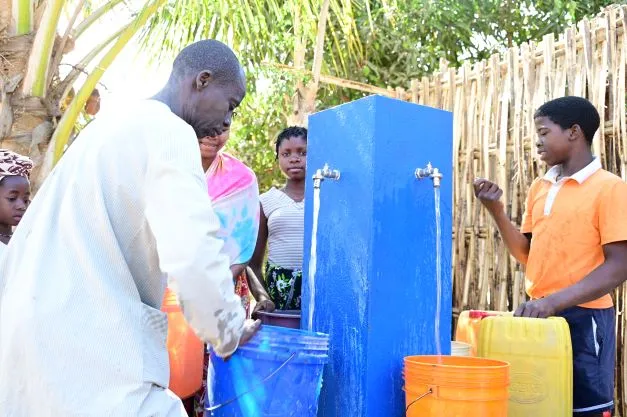
Supporting families separated by armed conflict and violence
- Trained CVM volunteers to work on the Restoring Family Links programme.
- Expanded the Restoring Family Links programme to different conflict-affected zones.
Visiting people deprived of freedom
- Visited six places of detention in Cabo Delgado, Nampula and Manica Provinces to support authorities in improvingdetention conditions.
- Supported Mieze prison farm in Cabo Delgado through provision of an assortment of vegetable seeds, fertilizer, and farming tools.
Engagement with armed and security forces
- Promoted the introduction, dissemination and implementation of IHL principles to over 700 participants from the Mozambican Armed Forces (FADM) and international military forces.
- Disseminated ICRC's mandate, history, fundamental principles and modus operandi to 230 participants during Mozambique's National Police Force (PRM) first Pedagogical Techniques course in Moamba.
Working with the Mozambican red cross (CVM)
- Organized and supported Movement Induction, Safer Access and First Aid trainings for 118 CVM volunteers.
- Conducted regular technical capacity building to volunteers in the areas of health, assistance, water and rehabilitation and Restoring Family Links.
For further information:
Mariana Camaroti, ICRC Maputo, +258 86 883 7981
mcamarotisilva@icrc.org
Alyona Synenko, ICRC Nairobi, +254 716 897 265
asynenko@icrc.org

